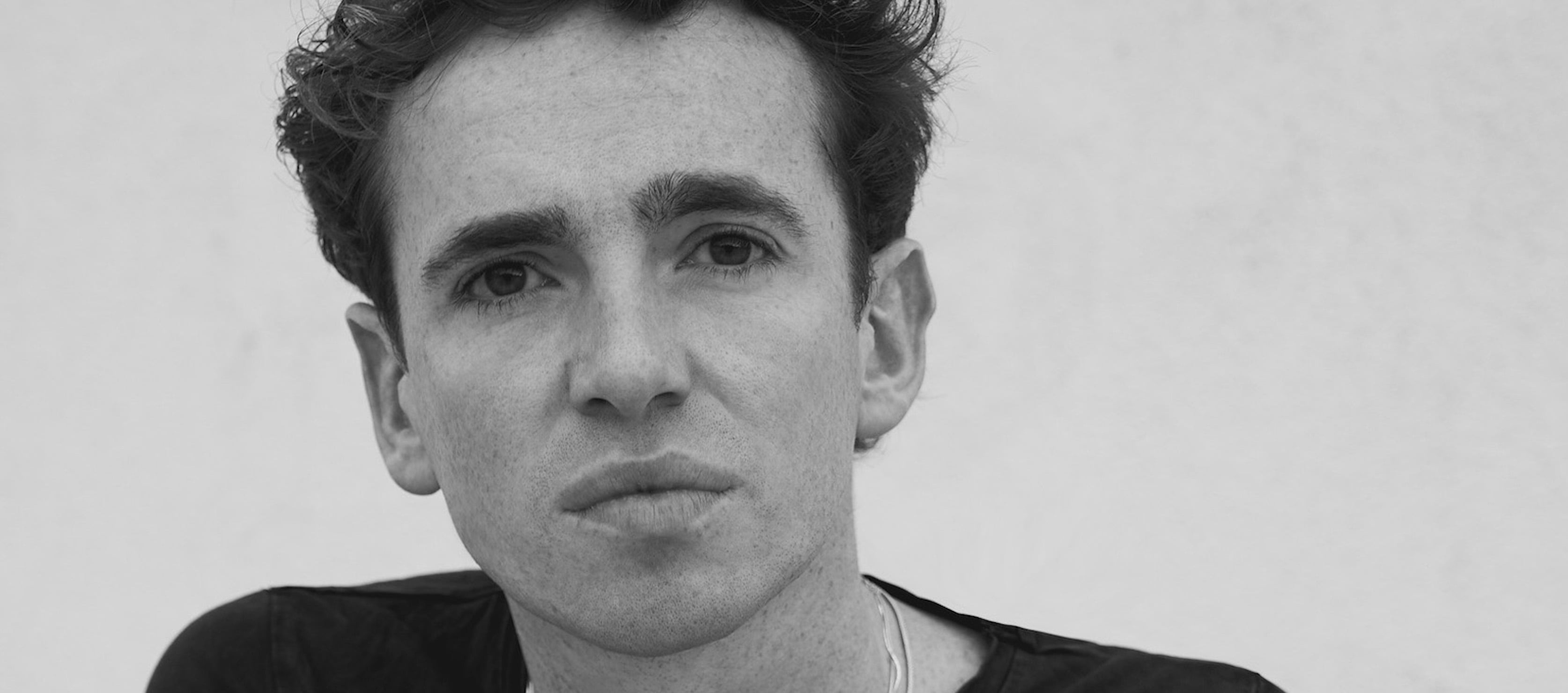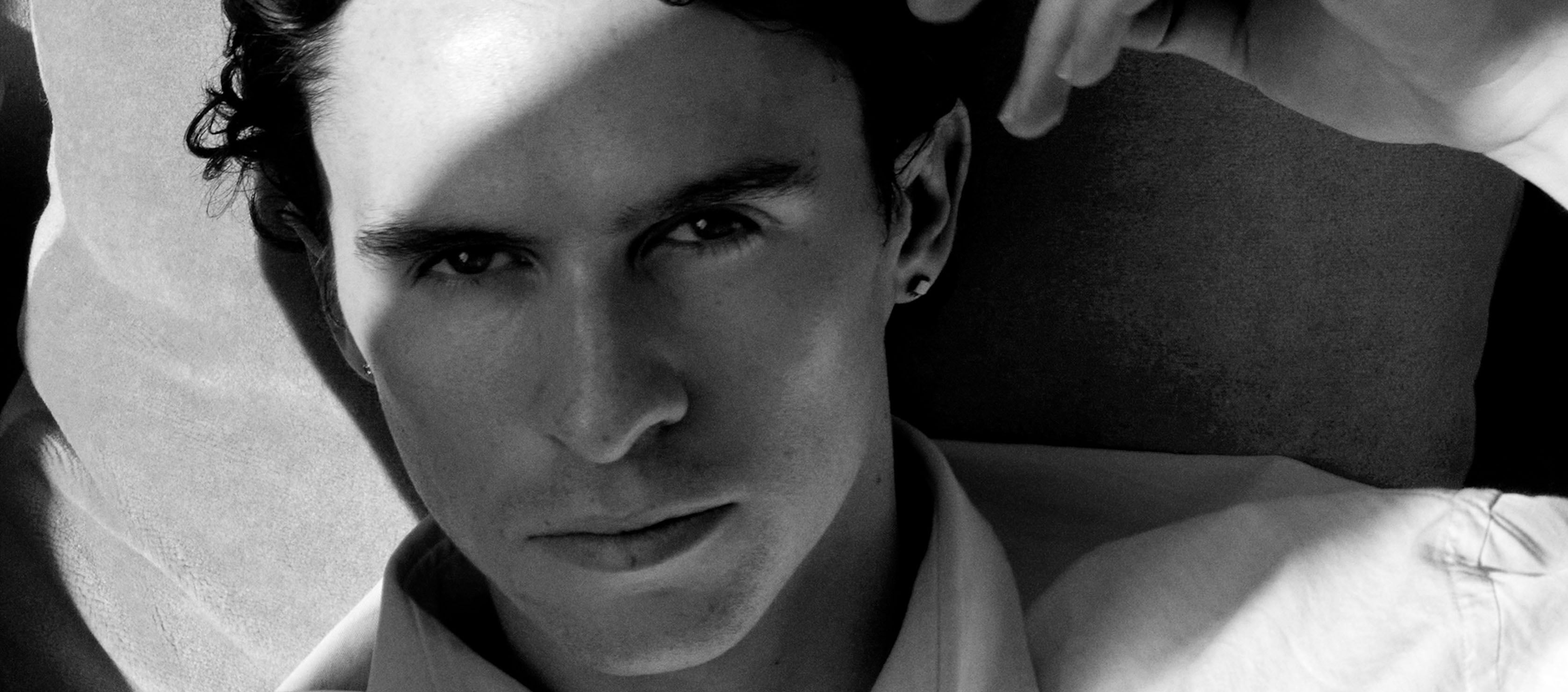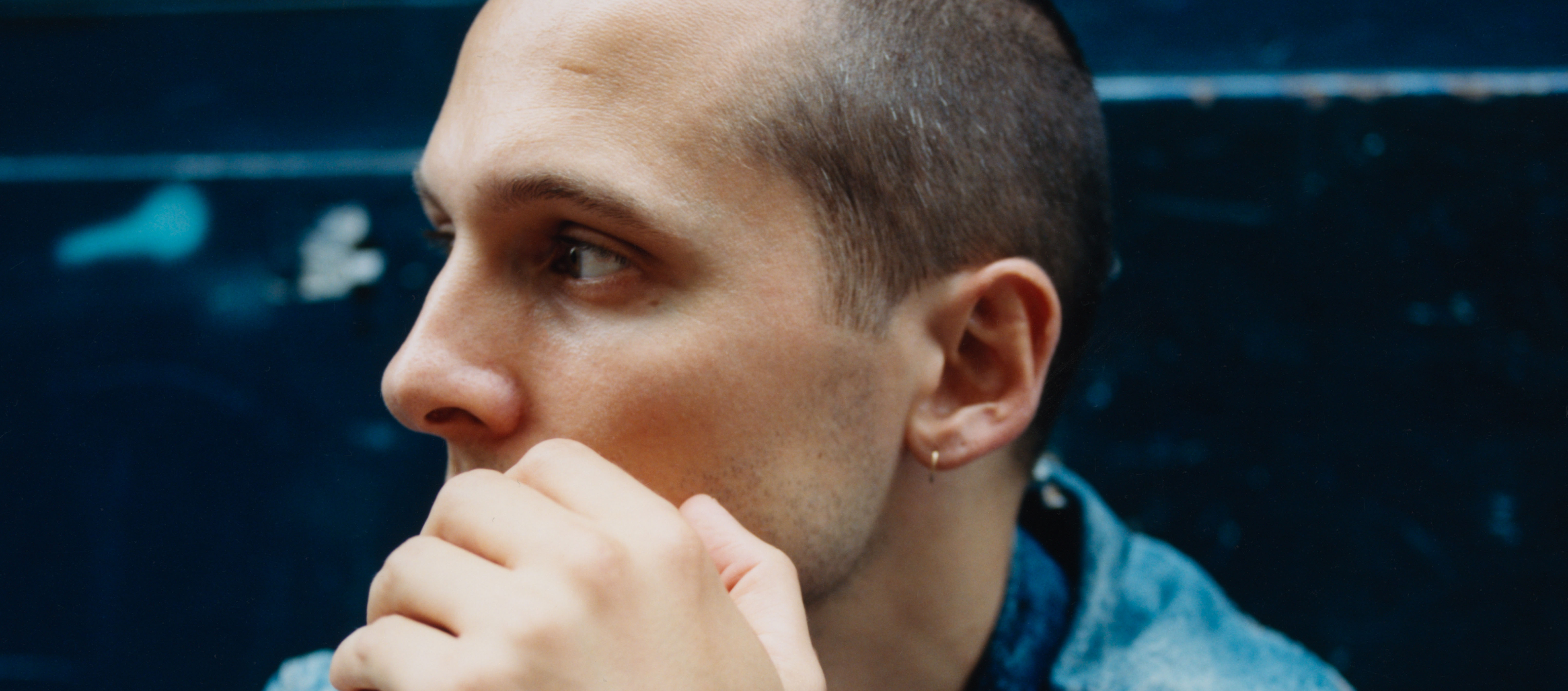With his deeply human turn as rough sleeper Mike in Harris Dickinson’s Urchin, Frank Dillane has found his leading man magnetism. The kind of actor who leaves a performance with more questions than when he began, his insatiable appetite for unearthing new stories might just make him one of film’s most nourishing forces of tomorrow.
There’s something fundamentally artistic about Frank Dillane. He second-guesses his own answers more often than not, furrows his brow further with each deepening thought, between erratic ruffles of his chestnut hair. He’s sitting in the offices of his publicist on a murky Tuesday afternoon in early October, discussing London’s problem with – “for want of a better word” – homelessness. On the subject and specifically on society’s stigma against those directly impacted by it, the 34-year-old’s voice strains with the strength of his emotion.
“Just say good morning, you know? ‘Hi, you alright mate?’ Just wave, smile, acknowledge,” he sighs. “We have this embarrassment as privileged people with money that we don’t want to see how cold we’ve become,” he continues. “How glazed over our hearts have become. And the person in front of you, they’re not pretending not to be there. They’re just another person. They may not even want anything from you.”
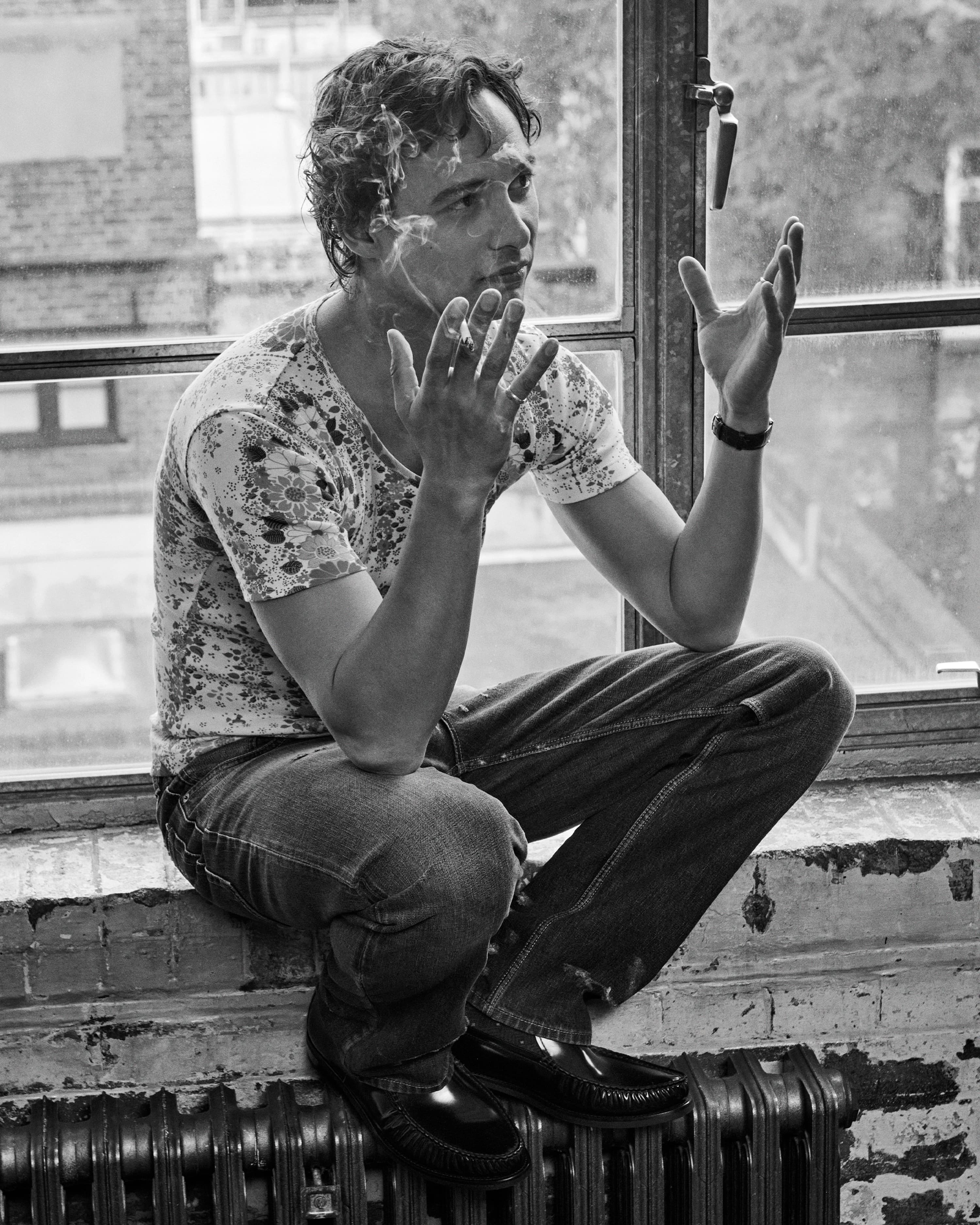
T-shirt, jeans & shoes PRADA, socks PANTHERELLA, necklace, watch and ring on left hand index finger CARTIER; all other rings Frank’s own
In the opening minutes of Urchin – the directorial debut of actor-turned-filmmaker Harris Dickinson – Dillane’s lead character, rough sleeper Mike, is seen asking for money on the streets. Dickinson, perhaps best known for weakening knees with his raucous turn opposite Nicole Kidman in 2024’s Babygirl, has crafted a courageous, downbeat drama, exploring the turbulence of its central anti-hero through addiction, crime, unemployment and loneliness. “It was enlightening to feel firsthand how people ignore you,” Dillane says of his time filming those early scenes, shot by hidden cameras amongst the public. “And the people who do not ignore you are the ones you might least expect.” He remembers one man, wearing a construction uniform, who gave him a fiver. “I may be wrong, but I don’t think he had masses of money. I think he worked on the roads or something. And he was the one who stopped. The people in the suits tend not to.”
The role of Mike proves apt to Dillane’s desire to push himself as a performer, as well as his altruistic instincts – he volunteered with a homeless charity (The Single Homeless Project) for years before the film was even conceived. However, “I don’t want to just talk about homelessness, because it’s not necessarily just a film about homelessness,” he clarifies. “For me – and if you speak to Harris, he’d say the same – it’s a film about othering, people who are ‘other’ than you. It’s about humanity, about being a human being.”
The responsibility of doing justice to his character steered Dillane towards the best performance of his career. “There were certain sensitivities that I really wanted to understand,” he says. “We didn’t want to tell a sob story. We wanted to give Mike dignity.” With such compassion, Dillane and Dickinson sculpted the role with the kind of nuance that only a handful of screen releases succeed in each year. As the viewer, you wholly, exhaustively believe Dillane as Mike, a charming but troubled young person whose repeated evasion of the right decision plants him in stagnant ground, in which a seed of stability seemingly cannot sprout.
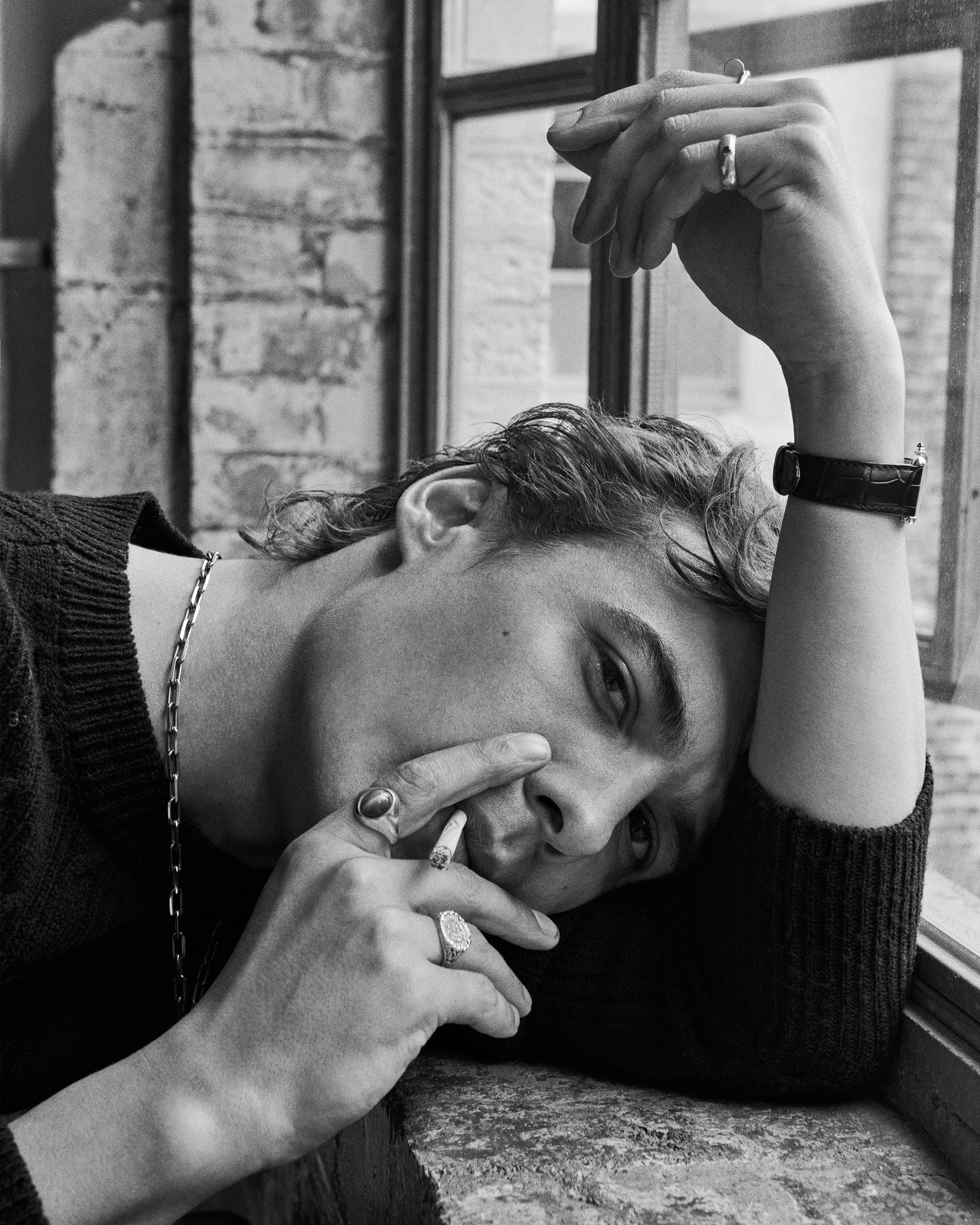
Jumper & trousers DRIES VAN NOTEN, necklace, watch and ring on left hand index finger CARTIER; all other rings Frank’s own
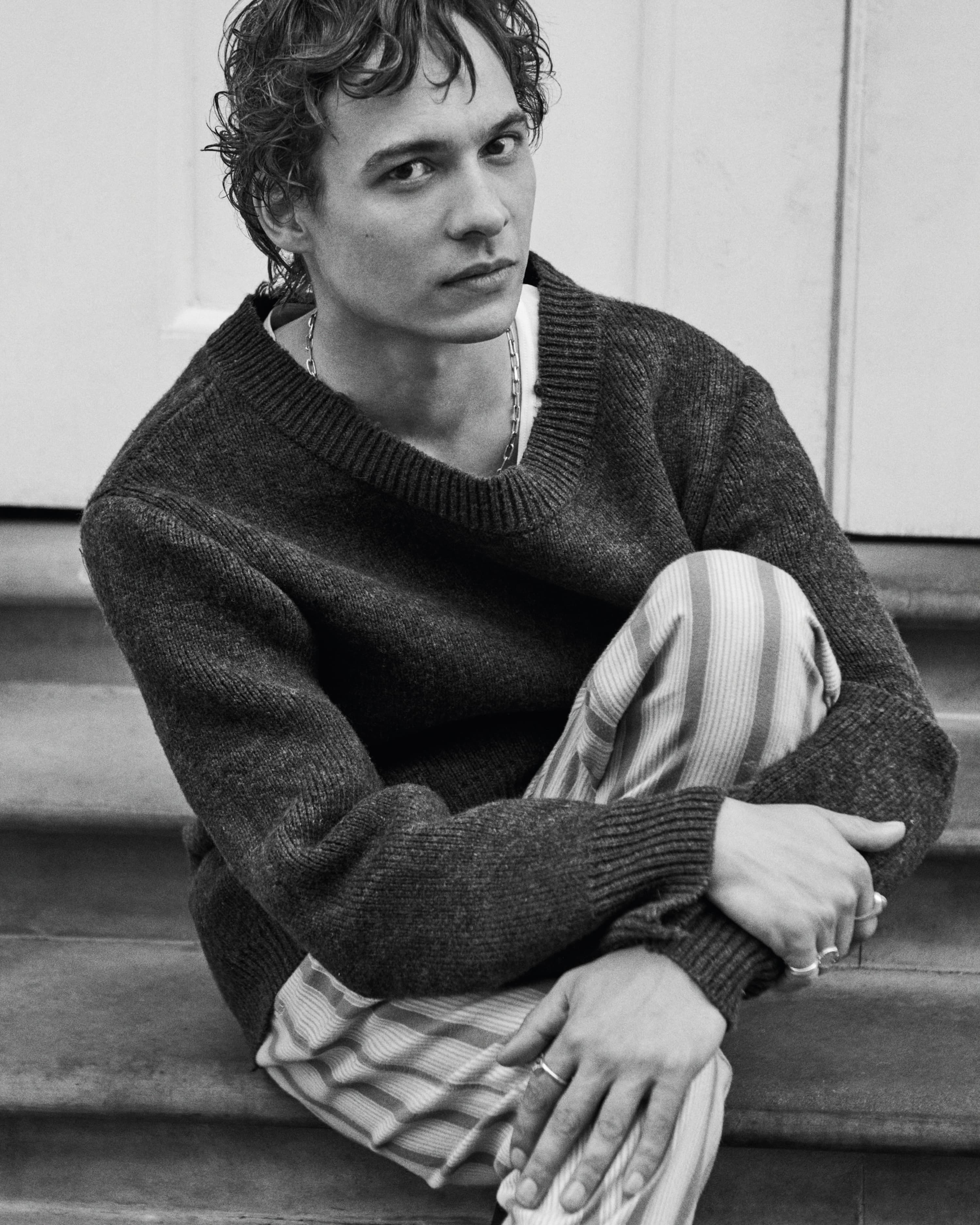
Jumper, trousers, boots PRADA, vest SUNSPEL, necklace, watch and ring on left hand index finger CARTIER; all other rings Frank’s own
To achieve synergy between himself and his on-screen persona, the performer immersed himself in the world that Mike inhabits. Dickinson cast Dillane around eight months before the film had been properly financed, and he began preparing almost immediately. “We did a lot of things,” he recalls. “We went into prison, and I spoke to a boy about his experience, how he feels, what’s going on, what it’s like there day-to-day. I have a lot of friends who live vicariously, so on a personal note, I spent as much time outside as possible, exploring what it feels like to not be able to shut the door, to never have privacy. And we talked a lot, me and Harris. We sent each other videos, and he put me in touch with some advisors. I went into a kitchen for a few days and learned to be a sous chef. So yeah, we did a lot of prep.”
From discovering the root of Mike to branching out his idiosyncrasies, Dillane grew into his counterpart’s physicality. “I remember Harris saying he wanted Mike to look like a flower with all the moisture sucked out of it,” he says. And so Dillane lost some weight and began paying great attention to how individual people move. “I became obsessed with how differently everyone walks. If you start looking at it, some walks are insanely dramatic. There was a certain athleticism and also a certain hunchedness that I wanted to achieve with Mike. This fighting spirit, this low self-esteem, this kind of foxy quality.”
Built from his “organic understanding of the world,” there’s a broken dynamism and a bruised masculinity in the way Dillane portrays Mike. Qualities that slice through the urban grit and occasional fantastical undertones of the film. There’s an air of Andrea Arnold, a touch of Ken Loach, a sprinkling of Shane Meadows – all melded within Dickinson’s own viewpoint of modern Britain. It may be his inaugural effort behind the lens, but he handles the challenge with the acuity of a filmmaker with decades of work under his belt.
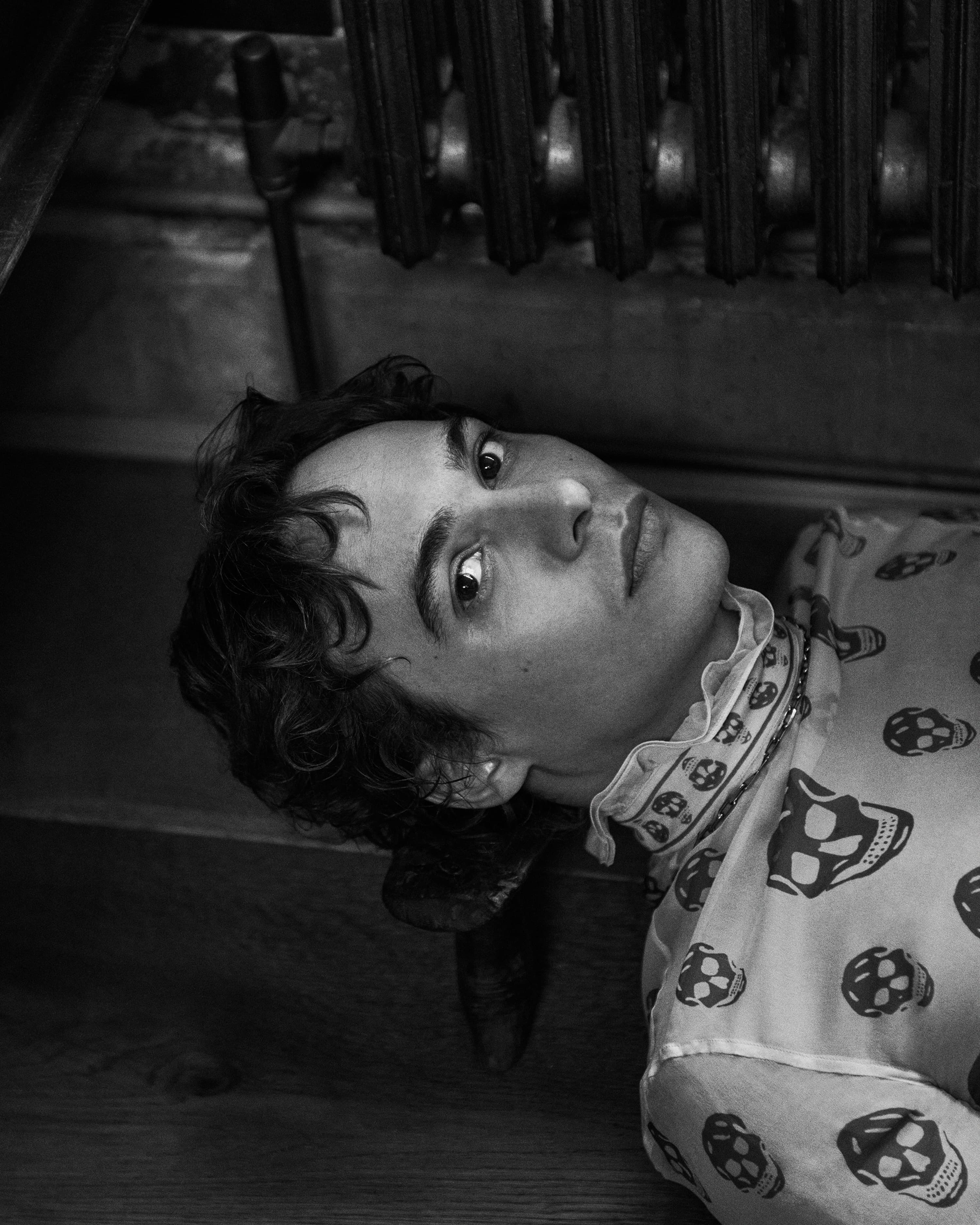
Top, trousers and boots McQUEEN, necklace, watch and ring on left hand index finger CARTIER; all other rings Frank’s own
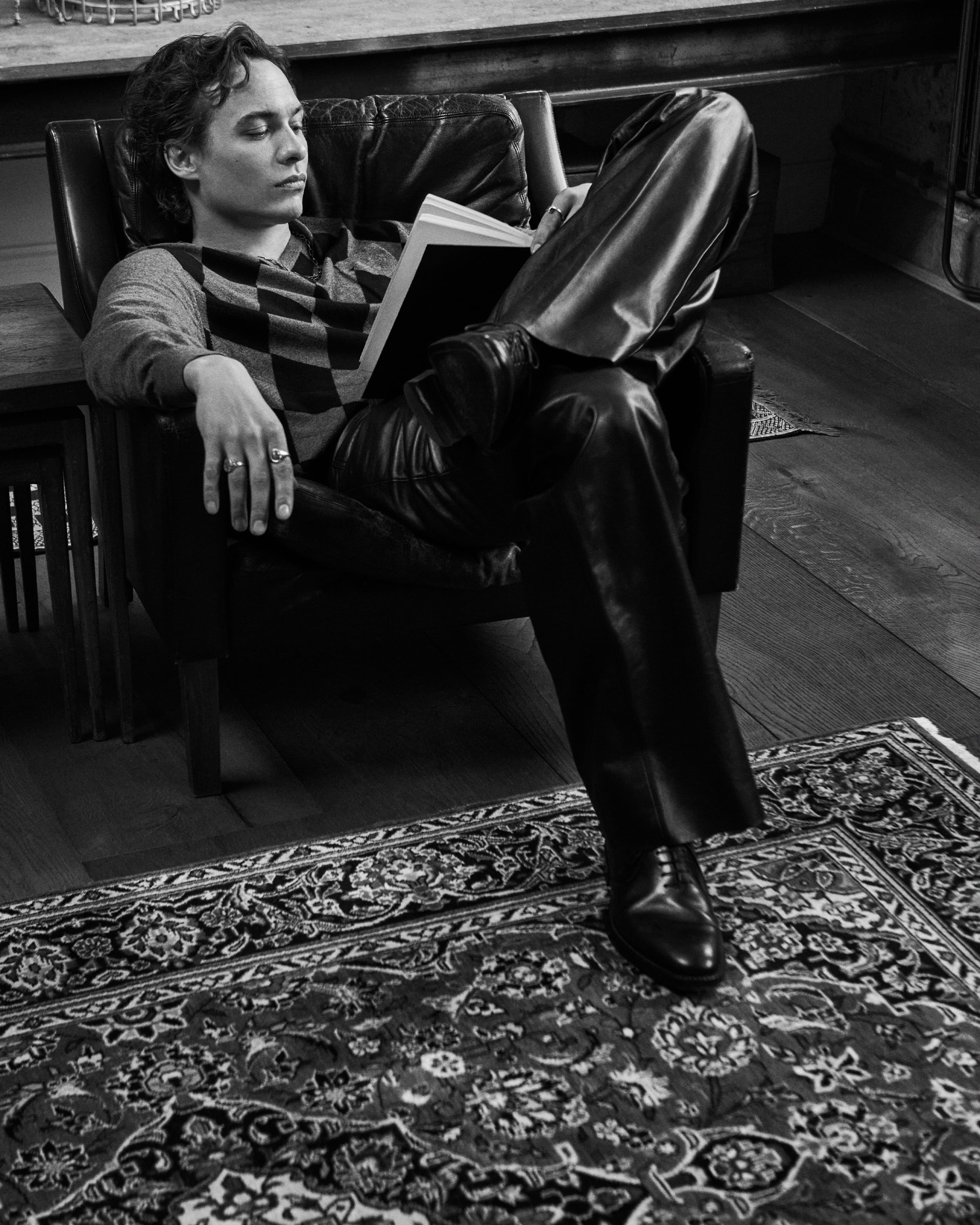
Jumper, trousers & shoes FERRAGAMO; necklace, watch and ring on left hand index finger CARTIER; all other rings Frank’s own
The story, thought up by Dickinson solely, thrives with its creator’s specific disposition: “a temperament, a sensitivity, a compassion and a genius that enabled us to shine a different light on this world,” Dillane feels. And the fact that Dickinson’s also an actor – with a supporting role in the film, something he had to be persuaded to do by his lead – allowed him to explore Mike’s vulnerabilities ever deeper. “[Harris] didn’t get frightened. He was up for it. He knew what I was doing, and he held space for it, which is rare, actually. He’s an actor’s director. It’s so important to be with your actors, to understand them, to direct them. It seems to me to be something that is really missed these days.”
It’s one of the best British actor-director collaborations of the year. A unique and richly delivered offering that launches both of its stars into a whole new echelon of respective acclaim. For Dillane, it feels like a consequential breakthrough moment. The plaudits are coming his way thick and fast. There was the “surreal” achievement of being awarded Un Certain Regard Best Actor at Cannes Film Festival in May. And the future looks bountiful, with “more scripts coming through and things that I don’t have to audition for, which is really nice.” It’s about time, he jokes. He’s been “out here,” after all.
Dillane’s eventual chosen craft might have seemed predestined in his childhood, with both his father, Stephen and mother, Naomi, actors themselves. “I resisted it for a while,” he admits. “There was a period when, because of my parents, I was resistant to go full throttle. But it’s the thing I can do best, I suppose. And I love acting now.” Despite his initial diffidence, it didn’t take Dillane long to bag himself a debut role in one of the most iconic franchises of his generation. “I was a baby,” he exclaims, teasing his teenage self as Tom Riddle (a teenage Voldemort) in Harry Potter and the Half Blood Prince. “I mean, look at me. I was a child. But I remember being extremely happy and overjoyed. It was a long, gruelling audition process.”
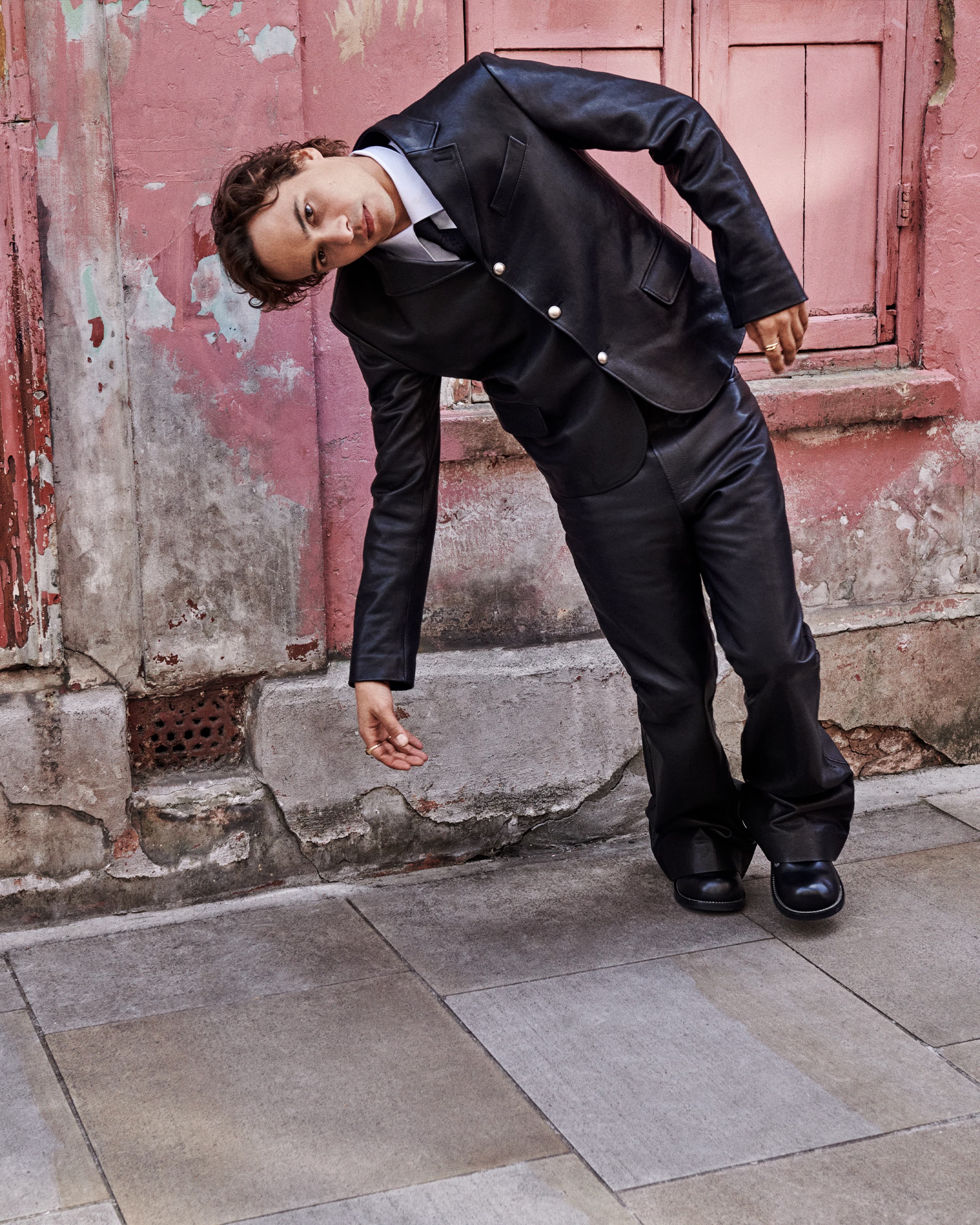
Jacket, shirt, tie, shoes LOUIS VUITTON; watch and ring on left hand index finger CARTIER; all other rings Frank’s own
Transforming a youthful Voldemort into a bit of a teen heartthrob was an early career climax that showed immense promise, subsequently maximised by Dillane digging in his heels and nurturing his craft into adulthood. He studied acting at RADA, graduated in 2013 and began picking up roles. There have been hits: he starred alongside Chris Hemsworth, Tom Holland and Cillian Murphy in Ron Howard’s sea epic In the Heart of the Sea, and survived four seasons as recovering drug addict Nick Clark in Fear the Walking Dead before eventually asking to be written out to pursue other opportunities. And misses: in 2014, he shot Viena and the Fantomes, a musical drama with Caleb Landry Jones, Jeremy Allen White, Jon Bernthal, Zoë Kravitz and Dakota Fanning. The film was delayed six years, finally released in 2020, and tanked critically despite its stellar cast. “It didn’t do what we all hoped it would do,” he grins in admittance. “I actually haven’t seen that. It’s funny, I know Jeremy and Caleb, Caleb’s one of my dearest friends and Jeremy as well. It’s funny to see how we’ve all grown up.”
There was a period, too, in the early 2020s, where Dillane dropped off the acting map completely, instead pursuing his other artistic pursuit – music. He’s a multi-instrumentalist, singer and songwriter who spent much of his later teens and twenties playing bass and singing in various bands. Perhaps jaded by the 44-episode stint on Fear the Walking Dead, and the screen industry’s tiresome modus operandi (“it was 13 episodes per season, very gruelling hours”), he turned his life on its axis.
“I moved to Berlin for two years,” he recounts, emitting a nostalgic sigh. “It was great. I went there to work with my childhood friend, Francesco, who lived out there. We made an album called Hiroshima Tarantula. Olmo Mathilda was the project’s name. So we made an album and we toured Europe a lot, because in Germany it’s a lot easier to play live and there’s more of a thirst for live shows. And my friend Fran had been there for a few years before that. So I was able to come in and we had a bit of a structure thanks to his previous success to hit the ground running a bit and just start playing and touring.” The album is a subtle and striking body of work, expansive in genre with richly off-beat performances and compelling arrangements throughout.
So, what drew the troubadour away from the welcoming arms of Germany’s cultural hub? “With the album finished, the friendship survived… just,” he chuckles. “No, I love Fran, he’s my oldest and one of my dearest friends. But playing in a band with someone, you get so deep with each other, spending all your time with each other. So we finished the album and decided we didn’t want to make another one and do solo stuff instead (he has two separate solo albums in the works, currently). And Brexit happened, so I also had to move back to England. And also – I missed acting.”
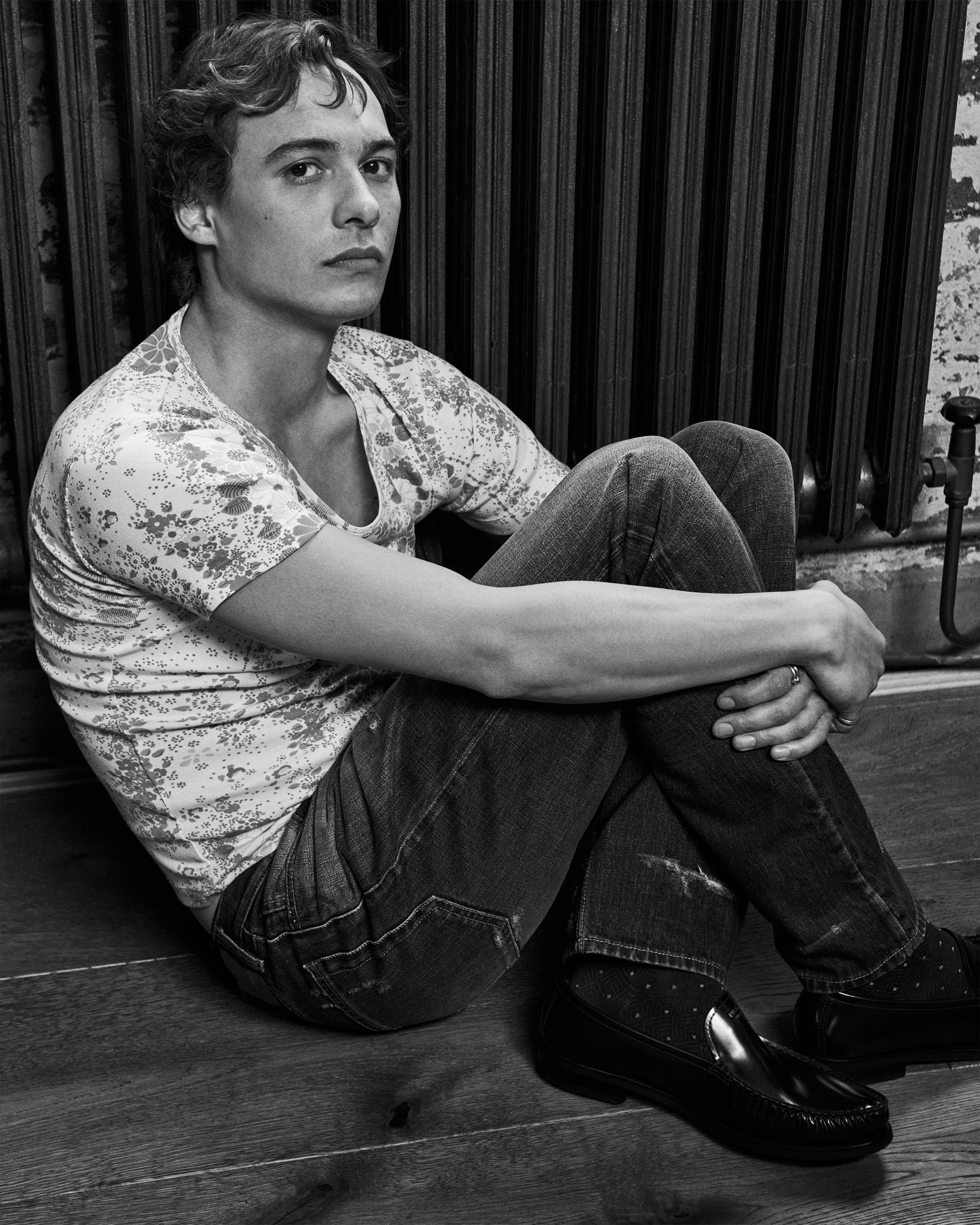
T-shirt, jeans & shoes PRADA, socks PANTHERELLA, necklace, watch and ring on left hand index finger CARTIER; all other rings Frank’s own
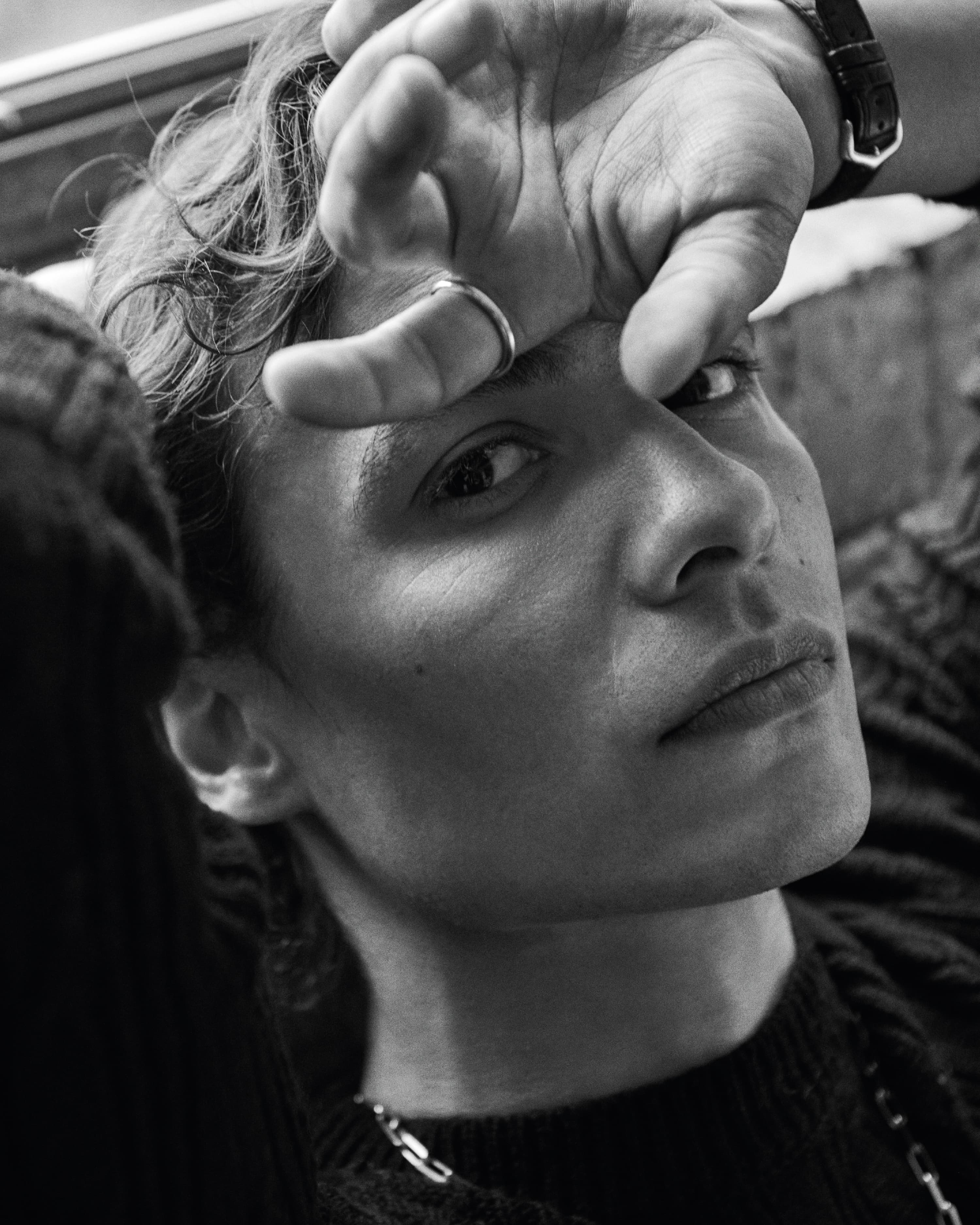
Jumper & trousers DRIES VAN NOTEN, necklace, watch and ring on left hand index finger CARTIER; all other rings Frank’s own
The two-year secondment to music complete, it didn’t take Dillane long to get back in front of the camera. “It reminded me how much work you have to put into anything artistic, but specifically into acting,” he reflects on his busy 2024 – built on recurring parts in Disney+ adventure epic Renegade Nell and Sophie Turner-led ITV crime drama Joan, as well as an appearance in MUBI’s surrealist sleeping gem, Harvest. “I’d been out for two years, so I had to start again. That period of time was very much about me getting back into the groove, remembering how to do it.”
And then came Urchin, a mark, if ever there was one, of how quickly life can change. From largely avoiding a career in acting to widespread celebration in the discipline within the space of a couple of years, Dillane went from a creative uncertain of his next step, to one of the hottest young actors in Britain, showered in praise for a role that not only spotlights an electric talent, but an unrelenting failing of British society.
Frank Dillane is an artist, a performer, a thinker, a thespian; now more willing than ever to push himself for his craft and whichever unknown it leads him to next. His next confirmed upcoming role comes alongside Daisy Edgar-Jones in Georgia Oakley’s retelling of Jane Austen’s Sense & Sensibility. In that performance, as with the many more that will follow suit, will be threads of his time with Mike and Dickinson.
“It’s incredible how mundane the circumstances can be to find yourself on the street,” he muses in totality. “It can be as simple as a partner leaving you, a family member dying. A mental pride can come into it – you don’t want to let people know the situation you’re in. The streets really are full of extraordinary stories and extraordinary people.”
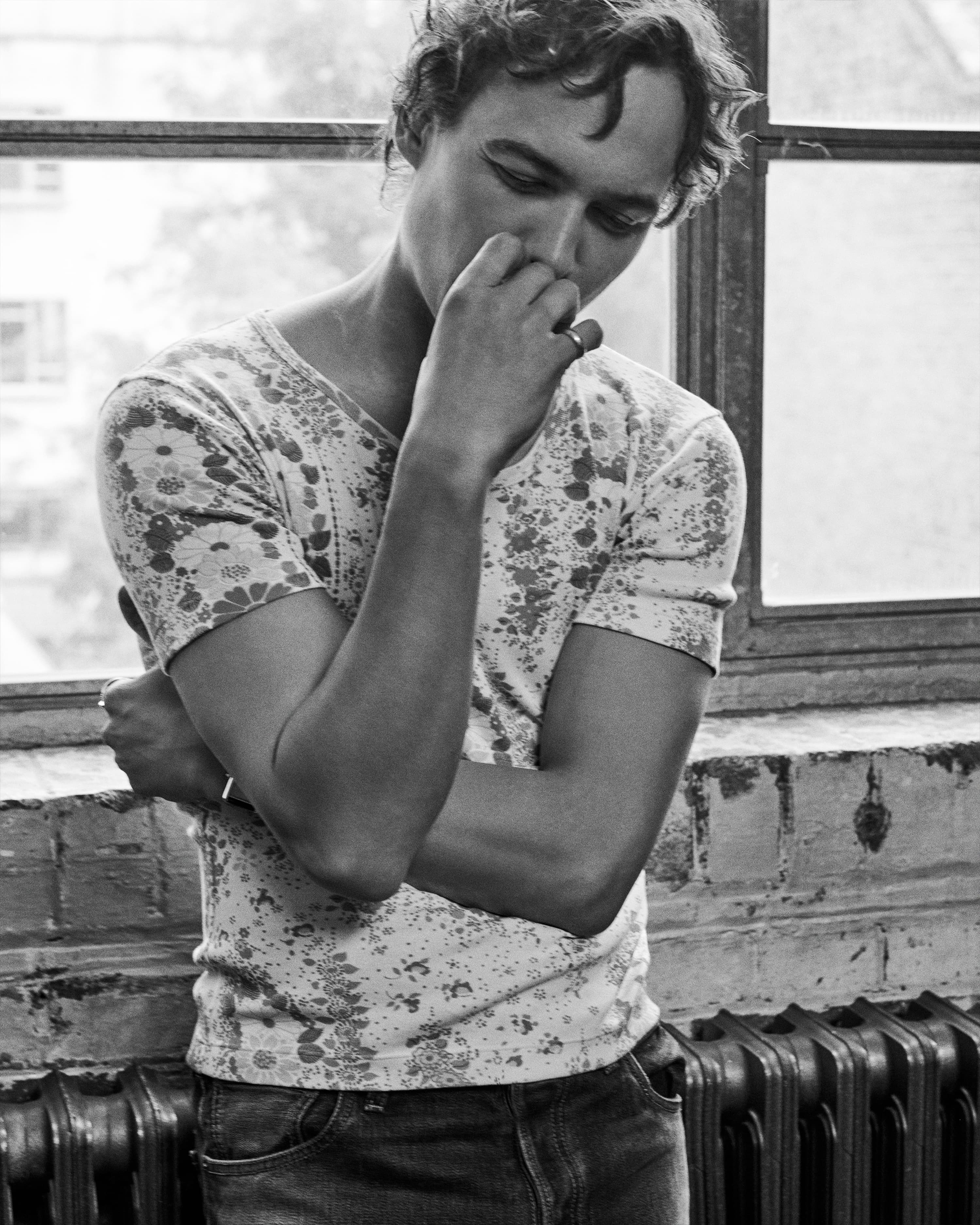
T-shirt, jeans & shoes PRADA, socks PANTHERELLA, necklace, watch and ring on left hand index finger CARTIER; all other rings Frank’s own
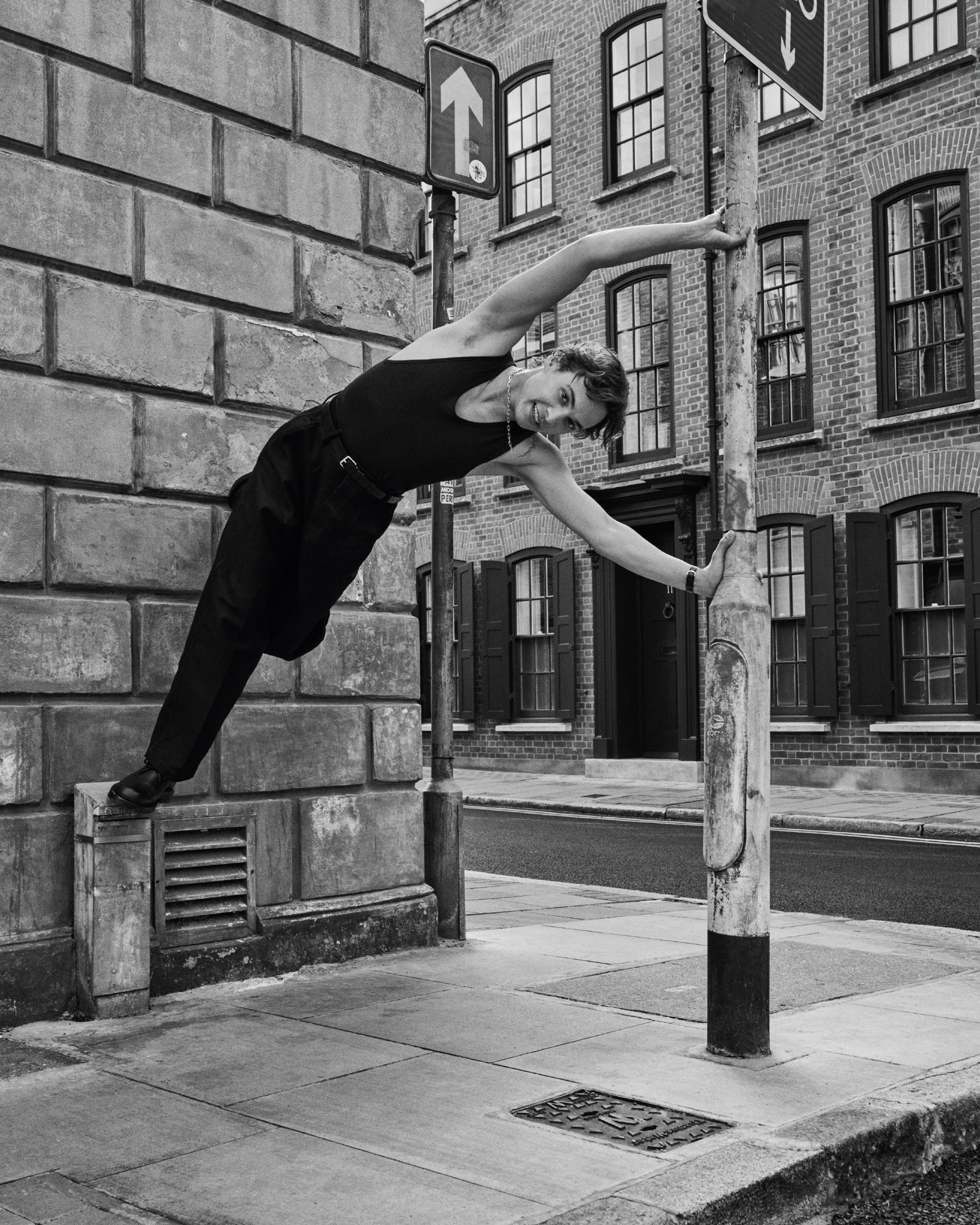
Vest, belt, trousers LEMAIRE; shoes JIMMY CHOO; necklace, watch and ring on left hand index finger CARTIER; all other rings Frank’s own
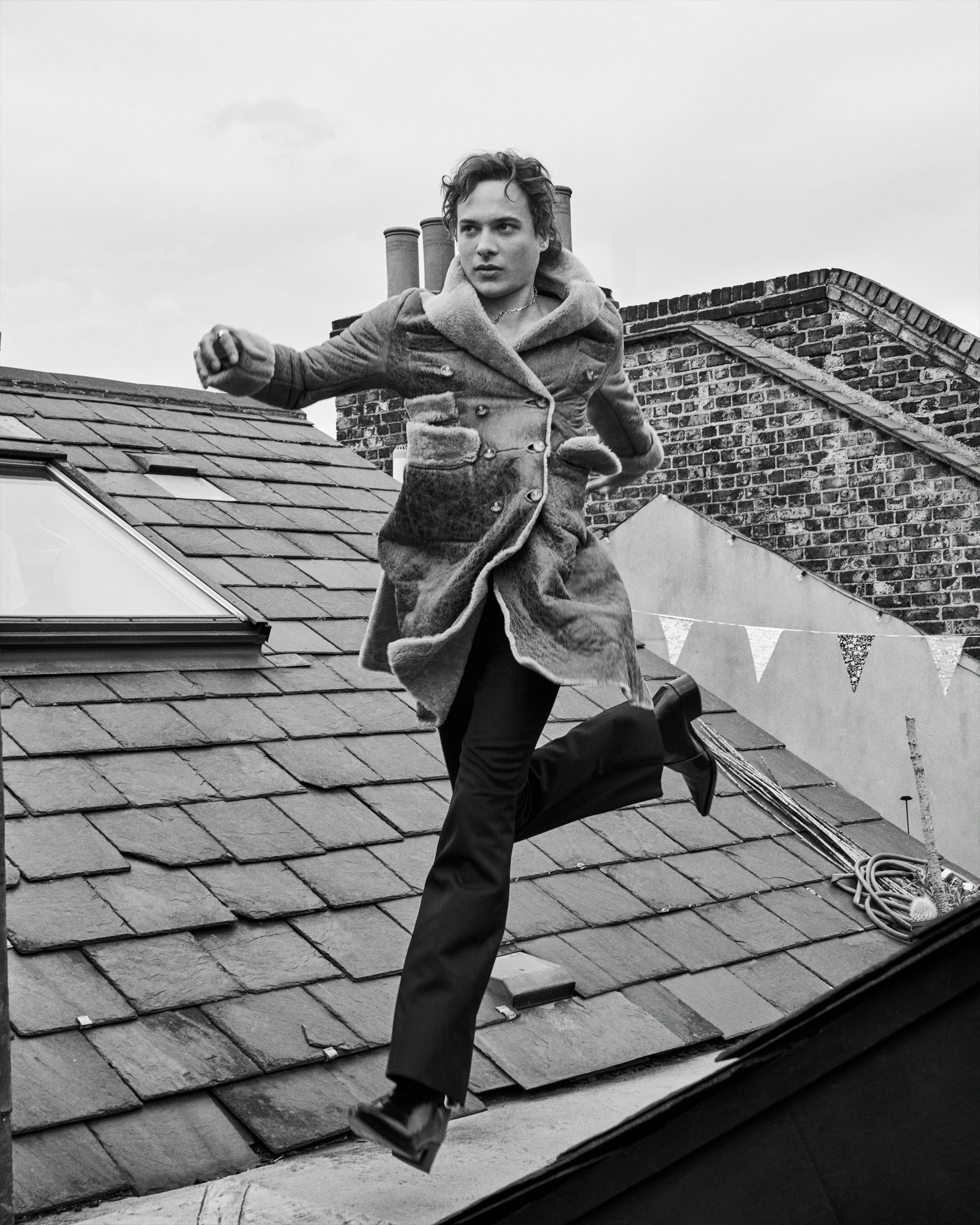
Coat VIVIENNE WESTWOOD; trousers & boots McQUEEN, necklace, watch and ring on left hand index finger CARTIER; all other rings Frank’s own
Photography
Branislav SimoncikStyling
Karen ClarksonGrooming
Charlie Cullen at Forward ArtistStyling Assistant
Virginia CorelliVideography
James Cox, Black Dots VideoEditor-in-chief
Luke DaySenior Editor
Andrew WrightArt Director
Michael MortonProduction Director
Lola RandallJunior Art Director
Natasha Lesiakowska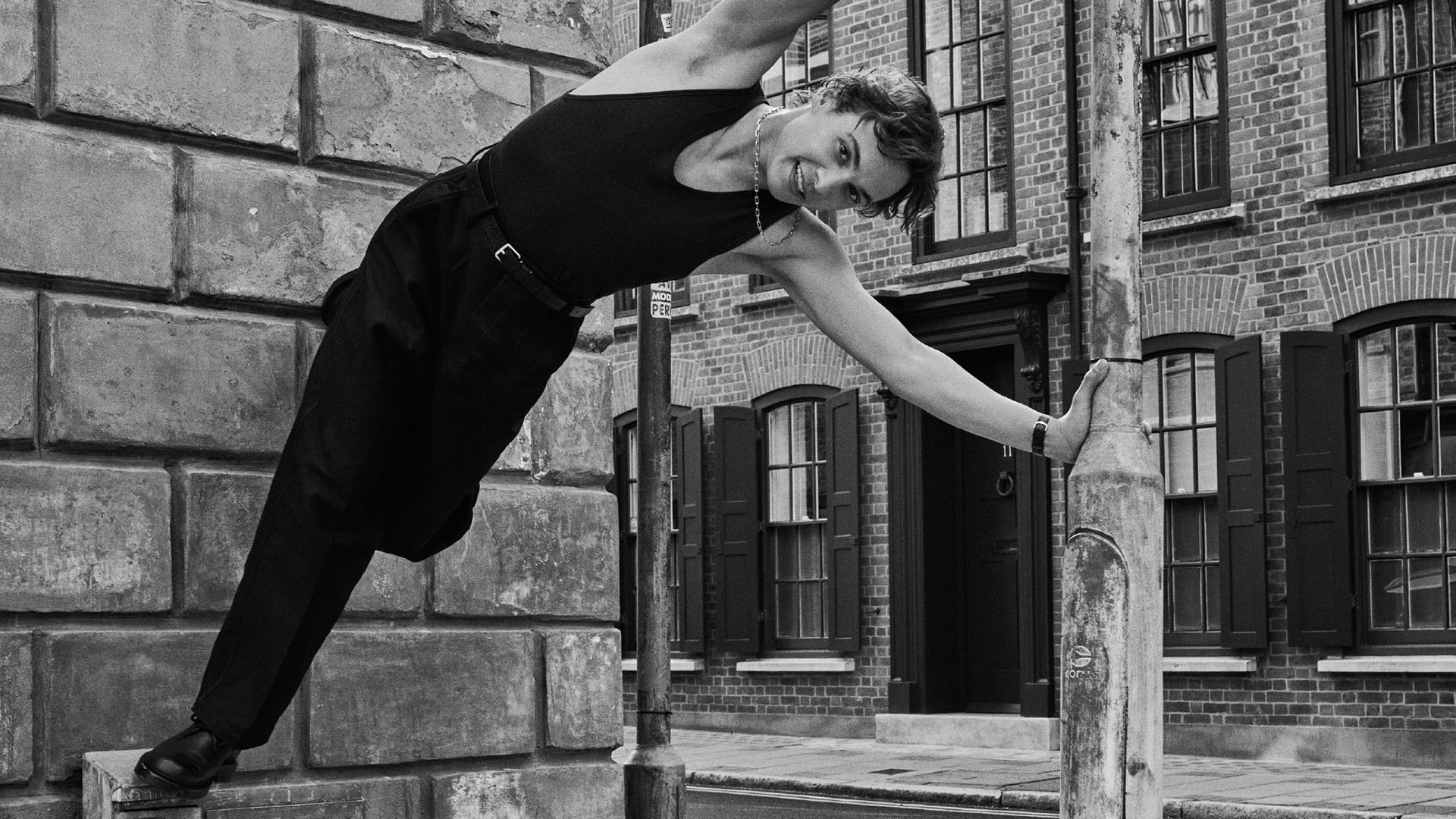
![Picture of “When We Were Developing Series [2], We Were Very Conscious Of The Live Debate About What It Means To Be British”: Tom Hiddleston On The Night Manager’s 2020s Comeback](/_next/image?url=https%3A%2F%2Fadmin.manabouttown.tv%2Fwp-content%2Fuploads%2F2026%2F02%2Fdigsfo-768x338.jpg&w=3840&q=85&dpl=dpl_EjAwSTQrsDwnDRHwvpyvnNVPFCv7)
![Picture of “[The Bridgerton Press Tour] Is Like Being On Some Sort Of Hallucinogenic Drug”: Luke Thompson Is Next In Line](/_next/image?url=https%3A%2F%2Fadmin.manabouttown.tv%2Fwp-content%2Fuploads%2F2026%2F01%2FLUKE-THOMPSON-hero-768x339.jpg&w=3840&q=85&dpl=dpl_EjAwSTQrsDwnDRHwvpyvnNVPFCv7)
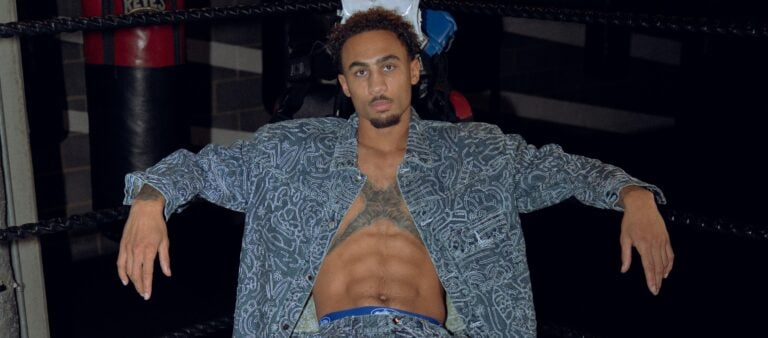
![Picture of “[Whether Photographing] A Dustman Or The Queen, I Will Try My Best – But, Naturally, The Queen Was A One-Off”: David Montgomery On Capturing Icons](/_next/image?url=https%3A%2F%2Fadmin.manabouttown.tv%2Fwp-content%2Fuploads%2F2025%2F12%2FDM-Hero.jpg&w=3840&q=85&dpl=dpl_EjAwSTQrsDwnDRHwvpyvnNVPFCv7)
